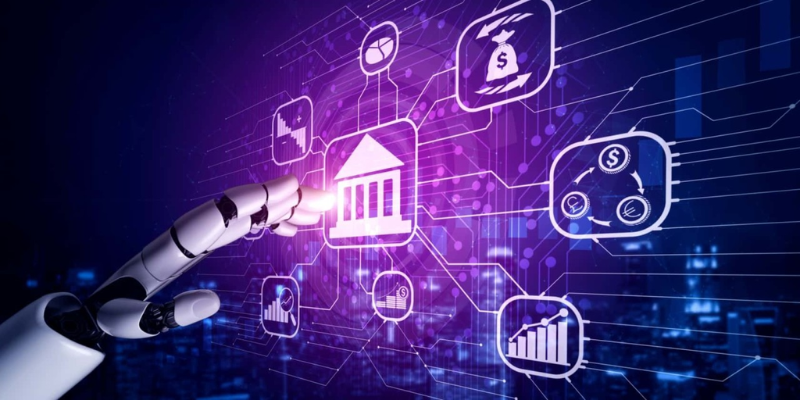The banking sector, a cornerstone of the global economy, has always been at the forefront of technological innovation. However, the advent of Robotic Process Automation (RPA) and Artificial Intelligence (AI) has ushered in a new era of transformation. These technologies are not only enhancing operational efficiency but are also redefining customer experiences and enabling banks to stay competitive in an increasingly digital landscape. This blog explores how RPA and AI are revolutionizing the banking sector, driving efficiency, reducing costs, and delivering unprecedented value to customers. RPA Training in Chennai further complements this transformation by equipping professionals with essential skills and knowledge.
The Role of RPA in Banking
Robotic Process Automation (RPA) is a technology that allows software robots to mimic human actions and automate repetitive tasks. In the banking sector, RPA is being leveraged to streamline processes, reduce human error, and free up employees for more strategic roles.
- Automating Routine Tasks: RPA excels at handling routine and repetitive tasks such as data entry, transaction processing, and compliance reporting. By automating these processes, banks can significantly reduce the time and resources required to perform them manually.
- Enhancing Compliance and Risk Management: Compliance is a critical concern in banking, with strict regulations that banks must adhere to. RPA can ensure that these processes are carried out accurately and consistently, reducing the risk of non-compliance and the associated penalties. Additionally, RPA can monitor transactions in real-time, flagging suspicious activities that may indicate fraud.
- Improving Customer Service: RPA can automate customer service tasks such as handling account inquiries, processing loan applications, and resolving common issues. This results in more seamless customer service and quicker reaction times. An RPA Course can provide the necessary skills to implement these efficiencies effectively.
The Impact of AI on the Banking Sector
Artificial Intelligence (AI) goes beyond automation to incorporate decision-making, learning, and predictive analytics. In banking, AI is transforming everything from customer interactions to risk management and fraud detection.
- Personalized Customer Experiences: AI-powered chatbots and virtual assistants are revolutionizing the way banks interact with customers. These tools can provide personalized advice, answer queries, and even assist with financial planning. By analyzing customer data, AI can offer tailored product recommendations, thereby enhancing customer satisfaction and loyalty.
- Predictive Analytics for Risk Management: AI’s ability to analyze vast amounts of data allows banks to predict and manage risks more effectively. For example, AI can analyze transaction patterns to identify potential loan defaulters or detect fraudulent activities before they escalate. This proactive approach to risk management is crucial in maintaining the stability and security of financial institutions.
- Streamlining Credit Scoring: Traditionally, credit scoring has been a time-consuming process that relies heavily on historical data. AI can speed up this process by analyzing a broader range of data points, including non-traditional sources such as social media activity and payment history with other service providers. This enables banks to make more accurate and inclusive lending decisions. Artificial Intelligence Course in Chennai can provide the knowledge needed to leverage these advanced analytical techniques effectively.
Integration of RPA and AI in Banking
The integration of RPA and AI in banking is creating a powerful synergy that combines the efficiency of automation with the intelligence of AI.
- End-to-End Process Automation: While RPA automates individual tasks, AI can analyze and optimize entire processes. For instance, in loan processing, RPA can automate document verification, while AI can assess creditworthiness and detect potential risks. This end-to-end automation not only speeds up the process but also improves accuracy and reduces operational costs.
- Enhanced Decision-Making: AI-driven analytics can provide insights that enable more informed decision-making. When integrated with RPA, these insights can be acted upon automatically, leading to faster and more accurate decisions. For example, AI can predict market trends, and RPA can execute trades based on these predictions without human intervention.
- Improved Fraud Detection and Prevention: AI’s ability to detect anomalies in large datasets makes it invaluable in identifying fraudulent activities. When combined with RPA, AI can trigger automated responses, such as blocking suspicious transactions or alerting compliance teams. This real-time detection and response capability is critical in minimizing the impact of fraud on both banks and their customers. Artificial Intelligence Online Course can further enhance skills in utilizing these advanced technologies effectively.
Challenges in Implementing RPA and AI in Banking
While the benefits of RPA and AI in banking are substantial, their implementation is not without challenges.
- Data Privacy and Security: Banks handle sensitive customer information, making data privacy and security a top priority. Implementing AI and RPA requires robust security measures to protect against data breaches and cyber threats.
- Integration with Legacy Systems: Many banks still rely on legacy systems that may not be compatible with modern RPA and AI technologies. Integrating these technologies can be complex and costly, requiring significant investment in infrastructure upgrades.
- Regulatory Compliance: The use of AI and RPA in banking is subject to strict regulatory oversight. Banks must ensure that their use of these technologies complies with all relevant laws and regulations, which can vary by region and jurisdiction.
- Workforce Transformation: The adoption of RPA and AI in banking necessitates a shift in workforce skills. Employees may need to be retrained to work alongside these technologies, and there may be concerns about job displacement due to automation.
RPA and AI are revolutionizing the banking sector by enhancing efficiency, improving customer experiences, and enabling more informed decision-making. While there are challenges to overcome, the potential benefits of these technologies are immense. Banks that successfully integrate RPA and AI into their operations will be well-positioned to thrive in an increasingly competitive and digital financial landscape. As these technologies continue to evolve, their impact on the banking sector is expected to grow, paving the way for a more efficient, secure, and customer-centric banking experience. Training Institute in Chennai can provide valuable resources and knowledge for those looking to leverage these advancements effectively.
